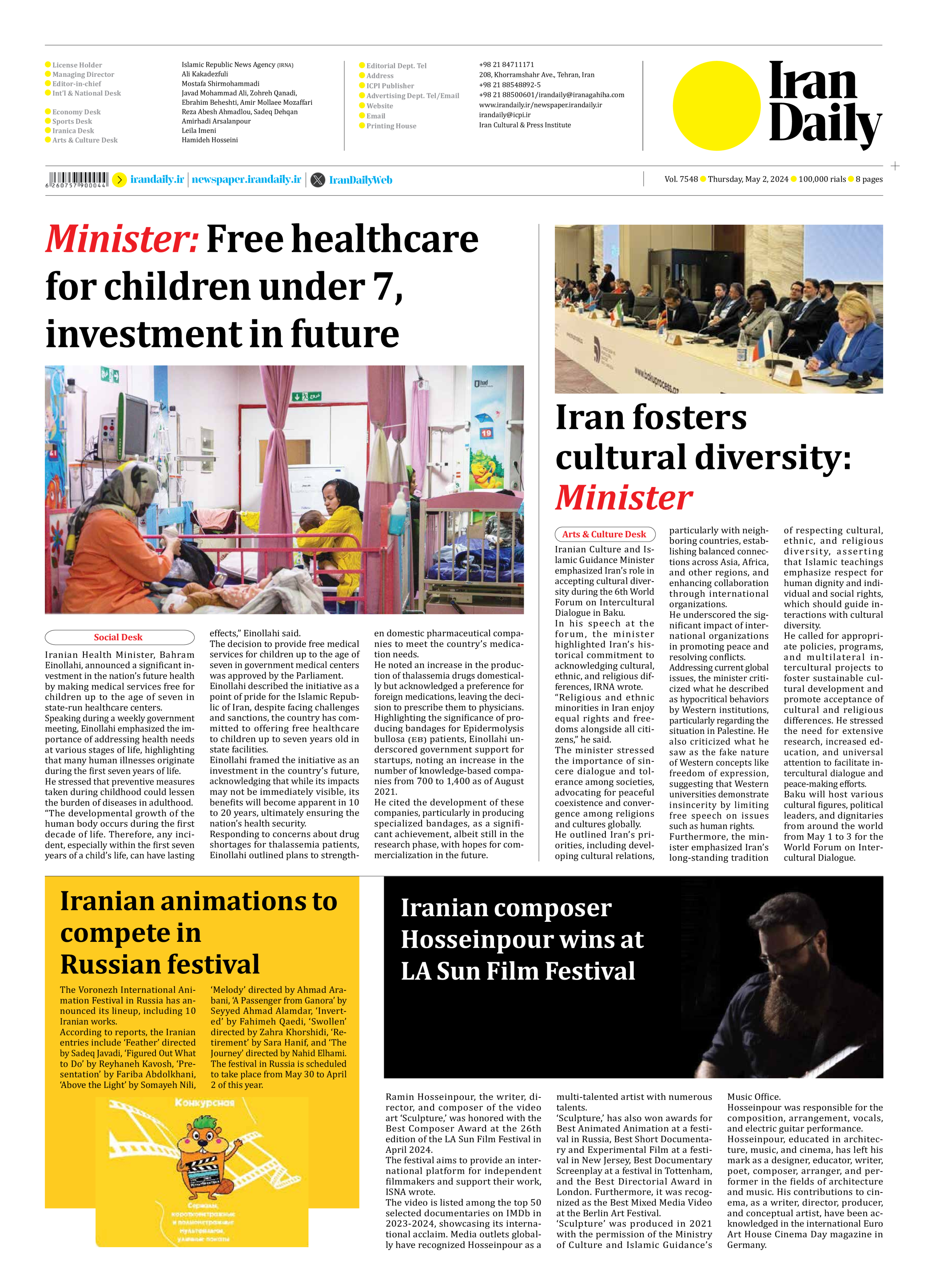
Copy in clipboard...
Minister: Free healthcare for children under 7, investment in future
Speaking during a weekly government meeting, Einollahi emphasized the importance of addressing health needs at various stages of life, highlighting that many human illnesses originate during the first seven years of life.
He stressed that preventive measures taken during childhood could lessen the burden of diseases in adulthood.
“The developmental growth of the human body occurs during the first decade of life. Therefore, any incident, especially within the first seven years of a child’s life, can have lasting effects,” Einollahi said.
The decision to provide free medical services for children up to the age of seven in government medical centers was approved by the Parliament.
Einollahi described the initiative as a point of pride for the Islamic Republic of Iran, despite facing challenges and sanctions, the country has committed to offering free healthcare to children up to seven years old in state facilities.
Einollahi framed the initiative as an investment in the country’s future, acknowledging that while its impacts may not be immediately visible, its benefits will become apparent in 10 to 20 years, ultimately ensuring the nation’s health security.
Responding to concerns about drug shortages for thalassemia patients, Einollahi outlined plans to strengthen domestic pharmaceutical companies to meet the country’s medication needs.
He noted an increase in the production of thalassemia drugs domestically but acknowledged a preference for foreign medications, leaving the decision to prescribe them to physicians.
Highlighting the significance of producing bandages for Epidermolysis bullosa (EB) patients, Einollahi underscored government support for startups, noting an increase in the number of knowledge-based companies from 700 to 1,400 as of August 2021.
He cited the development of these companies, particularly in producing specialized bandages, as a significant achievement, albeit still in the research phase, with hopes for commercialization in the future.







